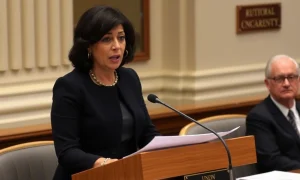Prime Minister Keir Starmer is dramatically tightening his grip on economic policy through a newly strengthened Budget Board that will shape Britain’s financial future. This strategic move comes as Chancellor Rachel Reeves faces mounting pressure from business groups and fiscal constraints ahead of the crucial Autumn Statement.
Budget Board Structure and Key Members
The revitalized Budget Board will meet weekly to ensure seamless coordination between Number 10 and the Treasury. Consequently, this new structure addresses previous criticism of disjointed economic messaging. The board features prominent co-chairs:
- Torsten Bell – Pensions minister and former Resolution Foundation director
- Minouche Shafik – Starmer’s chief economic adviser
- Katie Martin – Reeves’s chief of staff managing business relations
- Darren Jones – Chief Secretary to the Treasury
- Morgan McSweeney – Starmer’s chief of staff
Additionally, communications chiefs from both Number 10 and Number 11 will participate. Government insiders confirm this expanded lineup aims to align economic and political messaging while incorporating stronger business perspectives into budget discussions.
Fiscal Challenges Facing the Budget Board
Chancellor Reeves confronts significant fiscal pressure as the Office for Budget Responsibility prepares to downgrade economic forecasts. Independent estimates suggest she may need to find £25-50 billion in additional tax measures to maintain her self-imposed fiscal rules. This challenge follows previous criticism of her £25 billion employer national insurance increase, which business leaders argued raised hiring costs and fueled inflation.
Business Community Response
The Confederation of British Industry has urged radical tax reform rather than further increases. Rain Newton-Smith specifically highlighted stamp duty and VAT thresholds as areas requiring urgent overhaul. Meanwhile, the Institute of Directors welcomed the Budget Board’s creation but called for greater business representation. Chief economist Anna Leach emphasized the need for swift action to remove growth barriers from the tax and regulatory systems.
Strategic Implications of the Budget Board
This strengthened governance structure underscores Starmer’s determination to centralize economic decision-making and avoid recent political missteps. However, the board faces a complex balancing act between fiscal discipline and pro-growth policies that reassure enterprises. With sluggish growth and falling business confidence, the Autumn Statement will serve as the first major test of this new approach.
Frequently Asked Questions
What is the main purpose of the Budget Board?
The Budget Board ensures closer coordination between Number 10 and the Treasury while integrating business perspectives into economic planning.
When will the Budget Board meet?
The board will convene weekly to prepare for the Autumn Statement on November 26th.
Who are the key members of the Budget Board?
Key members include Torsten Bell, Minouche Shafik, Katie Martin, Darren Jones, and communications directors from both Number 10 and Number 11.
What fiscal challenges does the government face?
The government must find £25-50 billion in additional measures to meet fiscal rules amid expected downgraded economic forecasts.
How has the business community responded?
Business groups have welcomed the initiative but called for greater representation and radical tax reform rather than further increases.
What is the significance of the Autumn Statement?
The November statement will serve as the first major test of the new economic coordination structure and its ability to balance fiscal discipline with growth.








